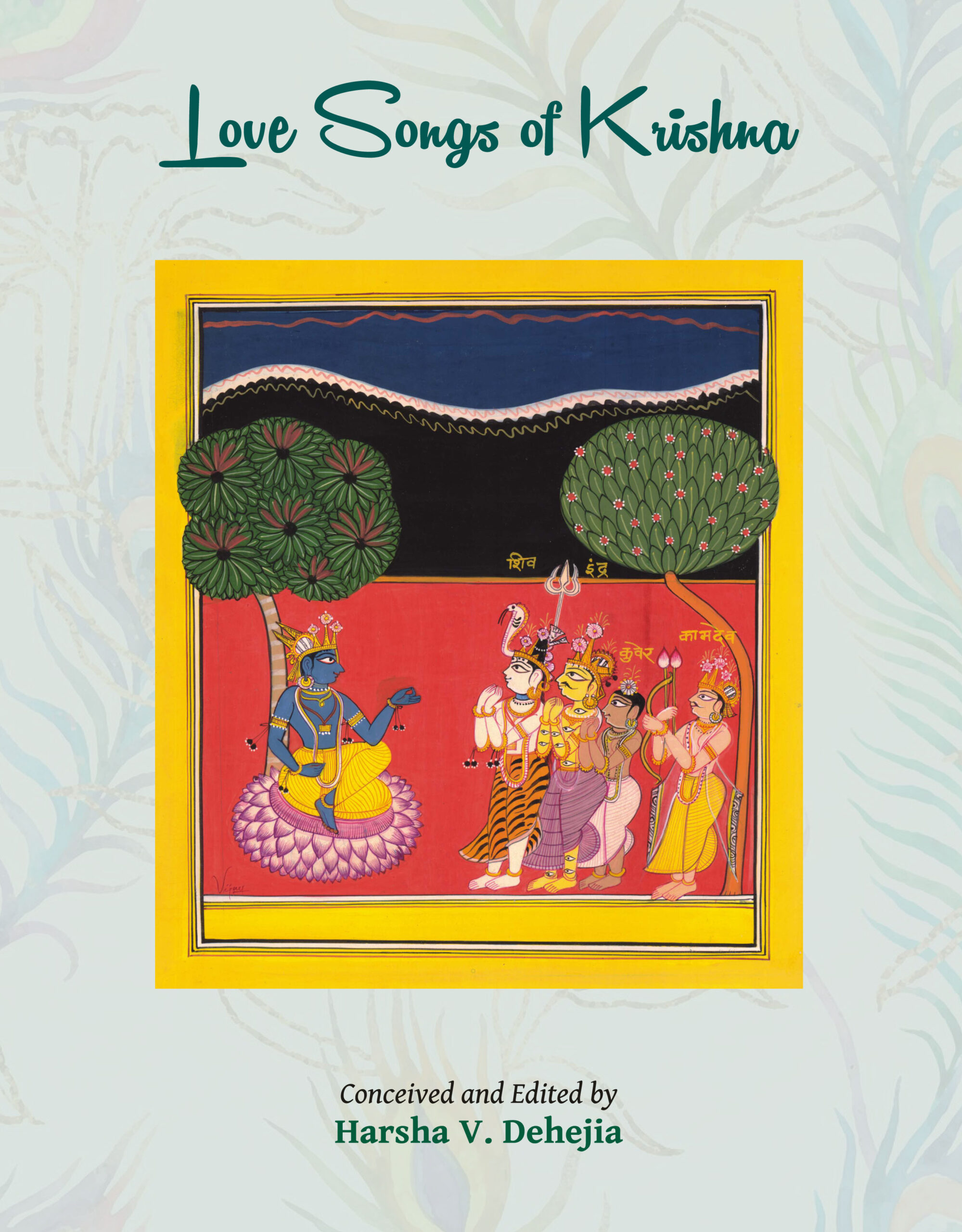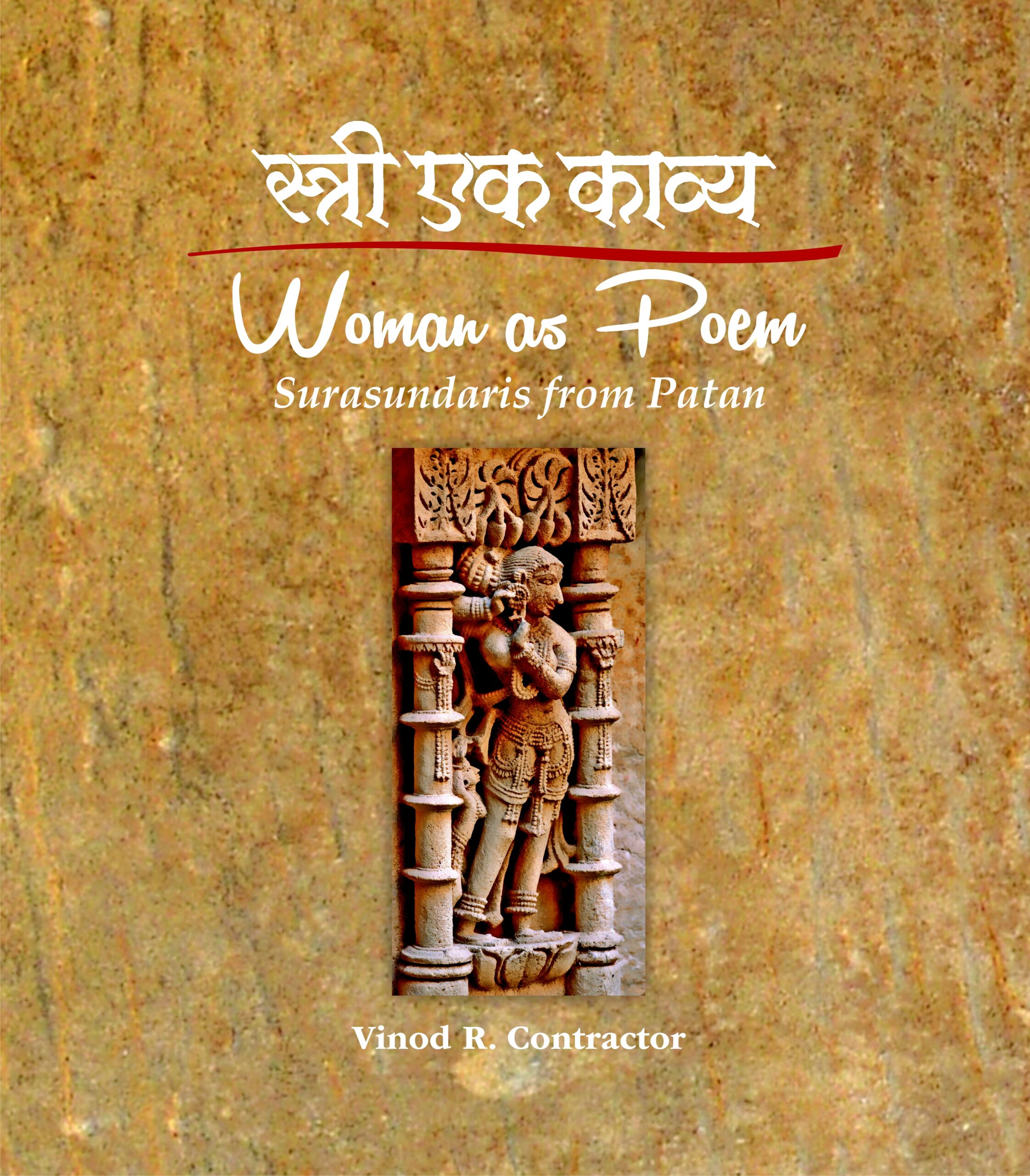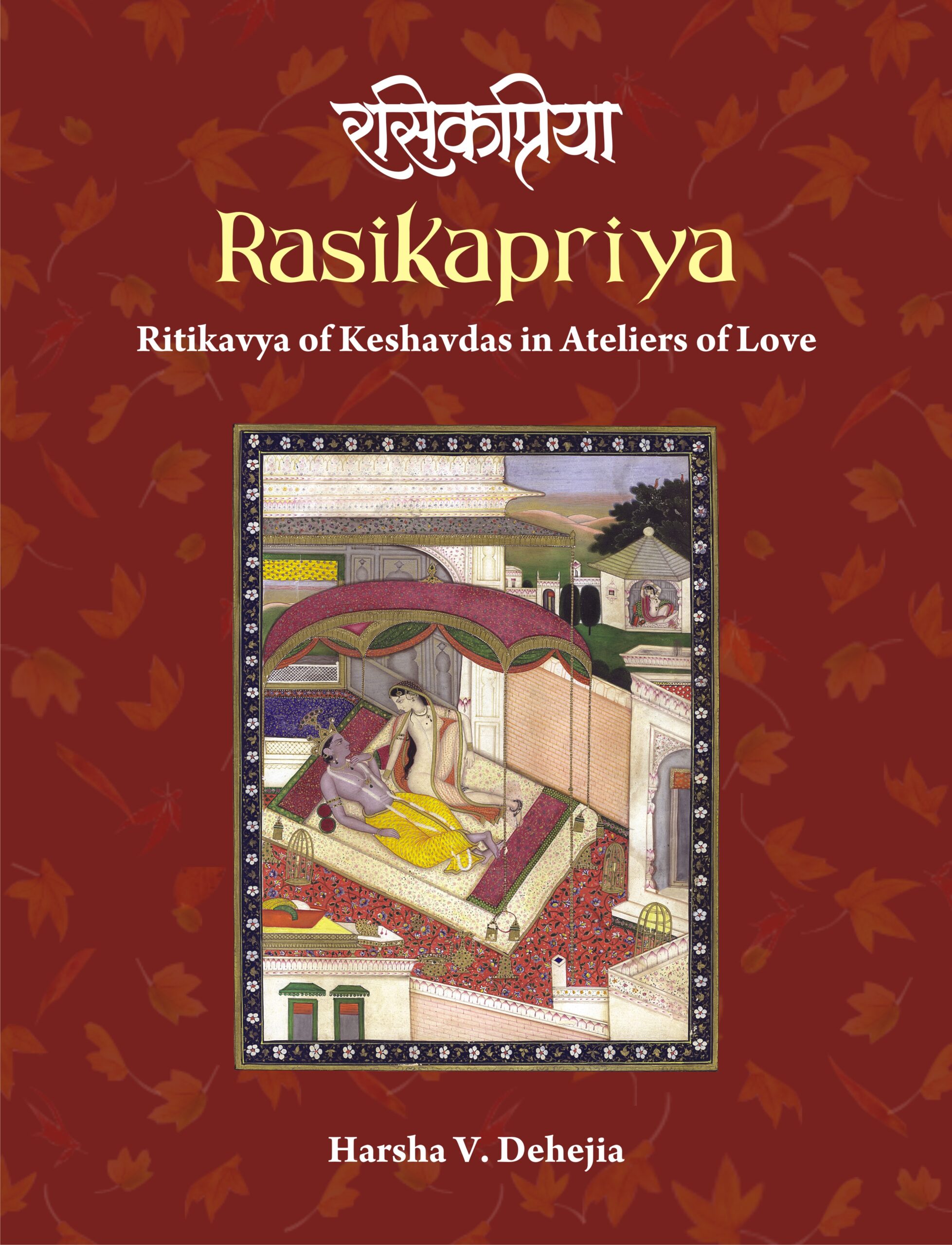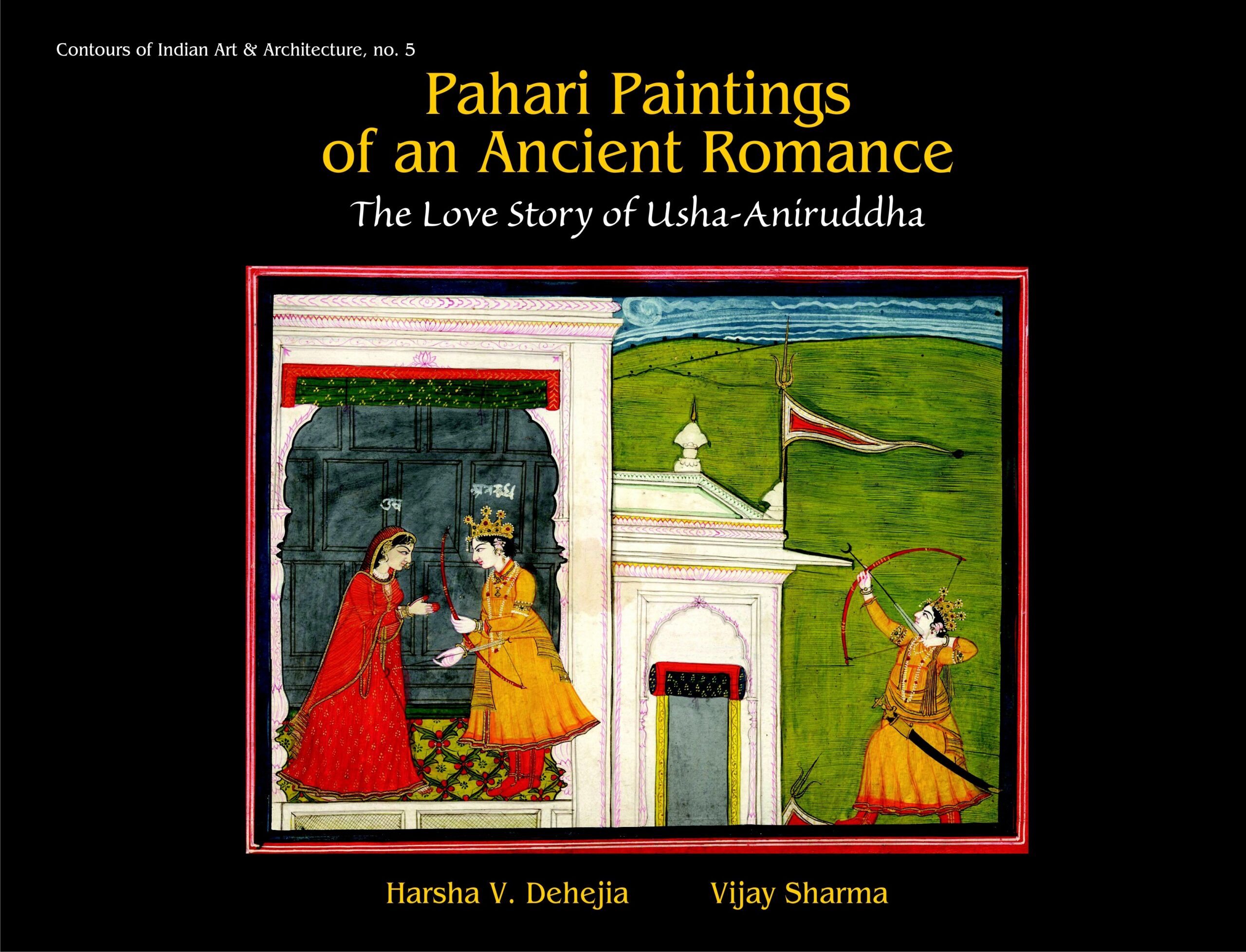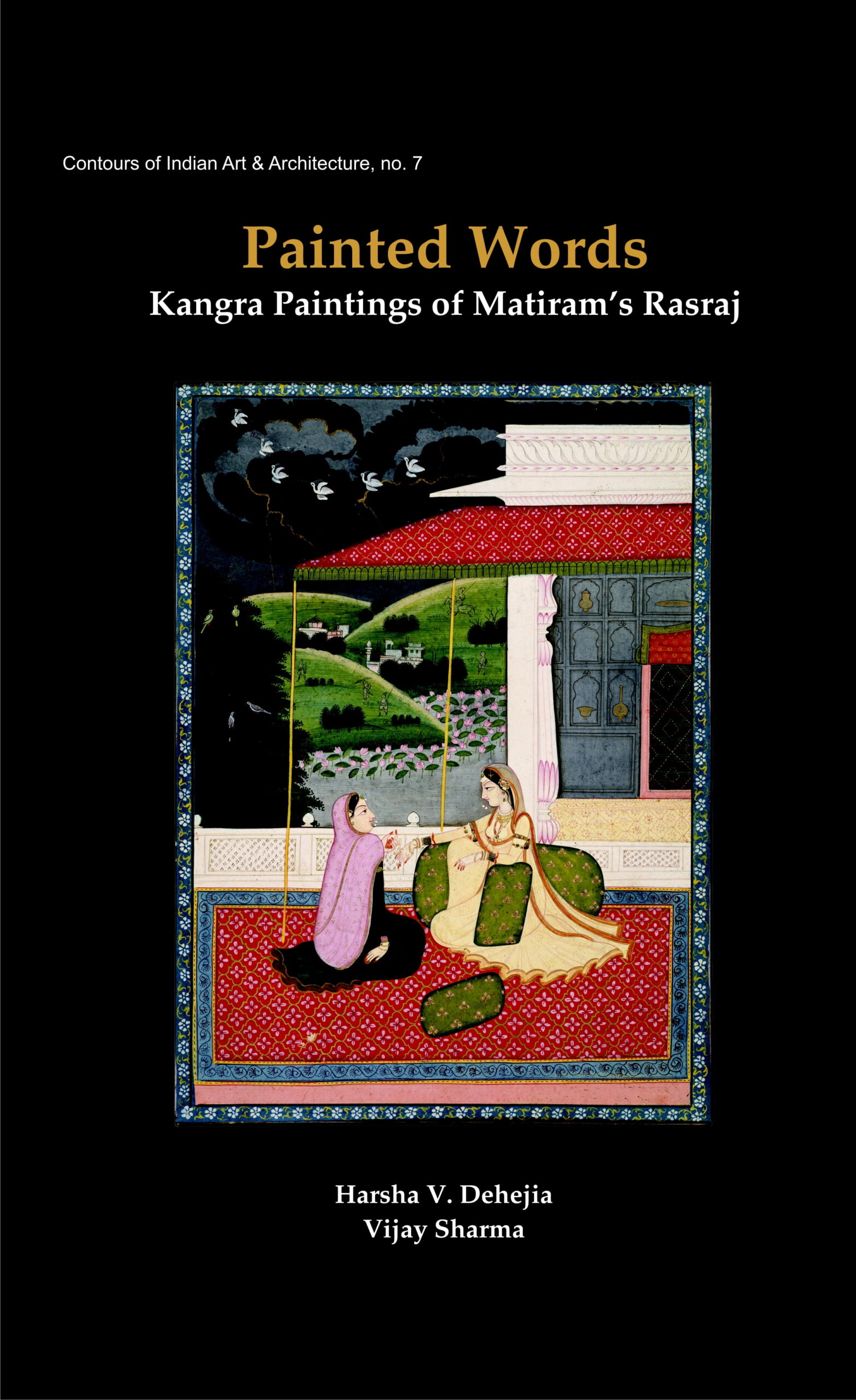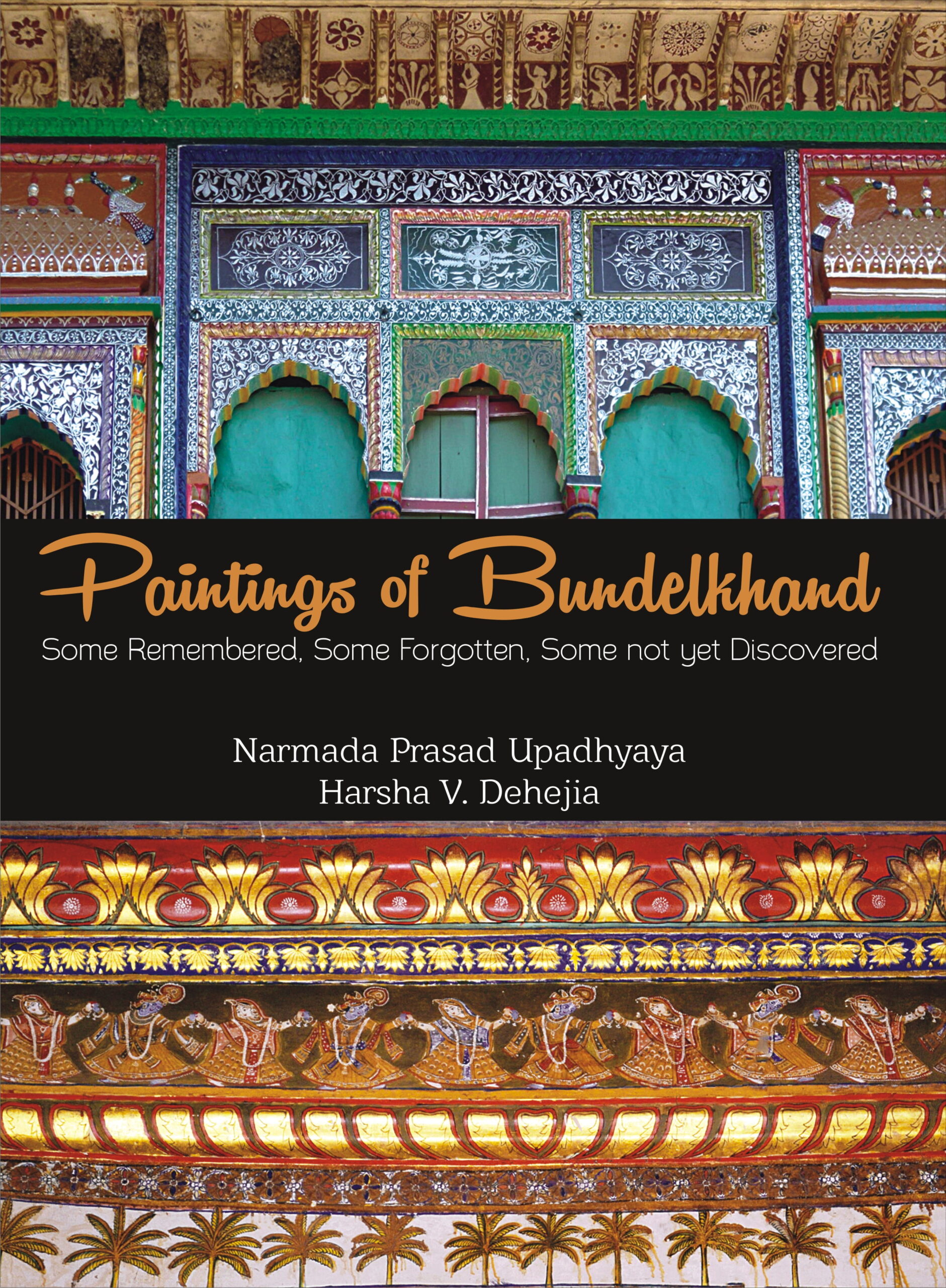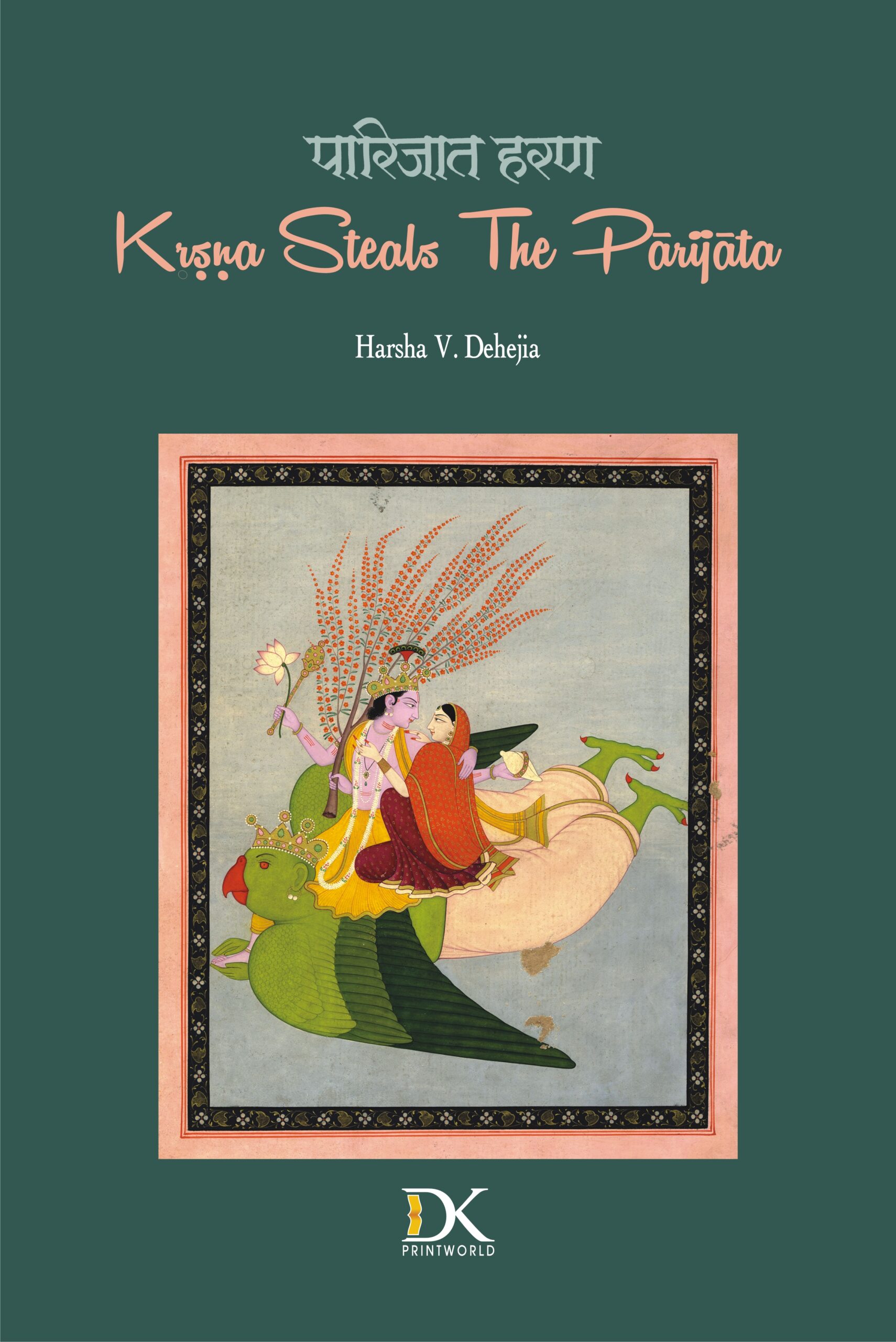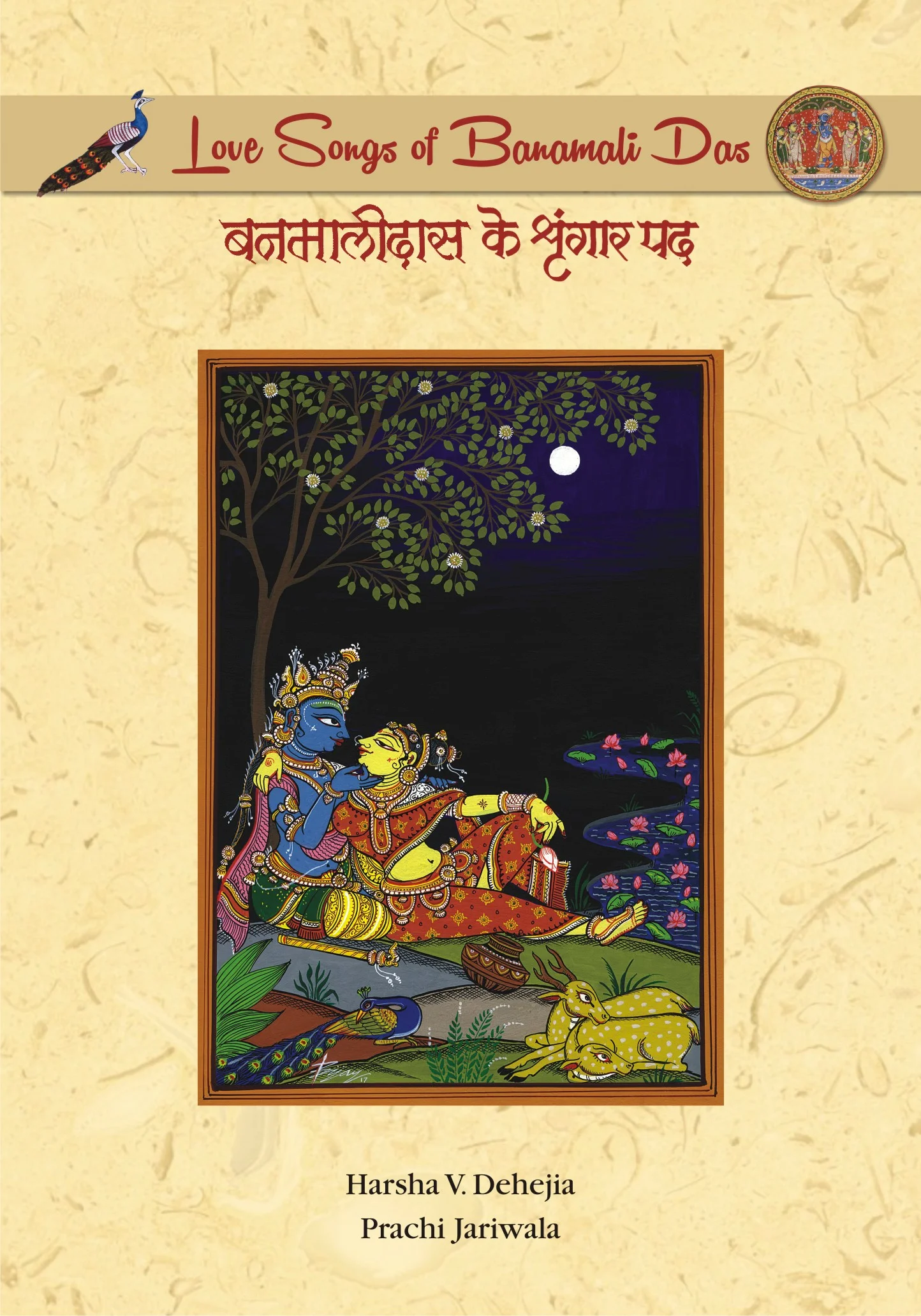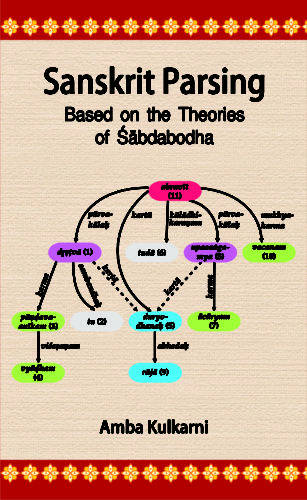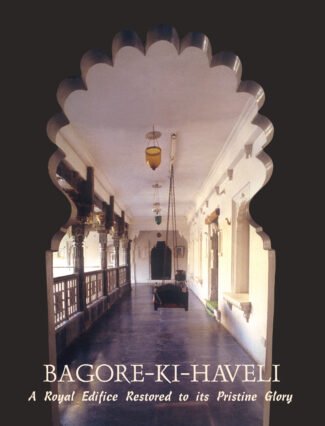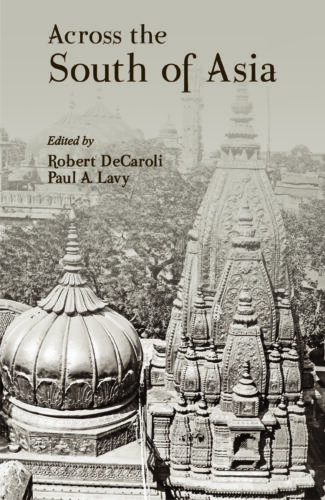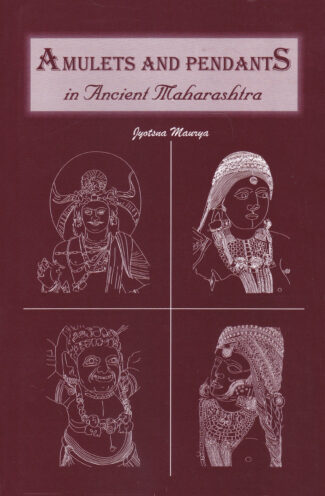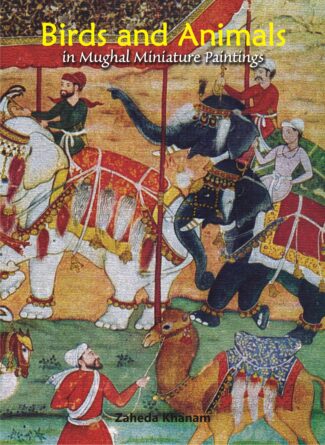

Krishna Bandish Mala...
Krishna Bandish Mala
by: Harsha V. Dehejia , Vijay SharmaKrishna shringara has a unique place in khayal bandishes, where words and music, raga and tala make bandish come alive. The paintings of khayal bandishes (Bandishmala) make one feel reminiscent of the Ragamala paintings. It makes a sahridaya travel to the supreme realms of Krishna shringara, elating him to the experience of poetry, art and bhakti.
₹800.00 Original price was: ₹800.00.₹720.00Current price is: ₹720.00.
ISBN: 9788124608555
Year Of Publication: 2016
Edition: 1st Edition
Pages : 167p.
Language : English
Binding : Hardcover
Publisher: D.K. Printworld Pvt. Ltd.
Size: 23
Weight: 600
Krishna shringara is a perennial legacy from the dasham skandha of the Bhagavata Purana, where the romance of Krishna in terms of his lilas and kridas is presented, to the tracks of Jayadeva, Narsinh Mehta, Vallabhacharya, the ashtachhaap kavis of Haveli Sangeet, Chaitanya, Bengal Vaishnava tradition, and the glorious period of Ritikavya. All these poetic streams flow into the river of khayal tradition, which in turn has significantly influenced the growth of khayal bandishes.
Krishna shringara has a unique place in khayal bandishes, where words and music, raga and tala make the bandishes come alive. The paintings of khayal bandishes (Bandishmala) make one feel reminiscent of Ragamala paintings. Khayal bandish travelled orally across centuries from village to temple and palace to proscenium.
The paintings make a sahridaya travel to the supreme realms of Krishna shringara, which ends in shringara bhakti.

- Sale!Rated 5.00 out of 5Sanskrit Parsing by: Amba Kulkarni
₹900.00Original price was: ₹900.00.₹810.00Current price is: ₹810.00.India has a rich grammatical tradition, still extant in the form of Panini’s grammar as well as the theories of verbal cognition. These two together provide a formal theory of language communication. The formal nature of the theory makes it directly relevant to the new technology called Natural Language Processing.
This book, first presents the key concepts from the Indian Grammatical Tradition (IGT) that are necessary for understanding the information flow in a language string and its dynamics. A fresh look at these concepts from the perspective of Natural Language Processing is provided. This is then followed by a concrete application of building a parser for Sanskrit using the framework of Indian Grammatical Tradition.
This book not only documents the salient pieces of work carried out over the last quarter century under Computational Paninian Grammar, but provides the first comprehensive exposition of the ideas involved. It fills a gap for students of Computational Linguistics/Natural Language Processing who are working on Indian languages using Paninian Grammatical Framework for developing their computational models and do not have direct access to the texts in Sanskrit.
Similarly for the Sanskrit scholars and the students it provides an example of concrete application of the Indian theories to solve a contemporary problem. - Sale!Bagore-Ki-Haveli by: Piers Helsen
₹95.00Original price was: ₹95.00.₹86.00Current price is: ₹86.00.Rajasthan boasts of many beautiful monuments and structures of the royalty which stand as evidence to Indias glorious ancient culture and heritage. The Bagore-ki-Haveli is one such edifice. The book takes us through the architectural wonders of the haveli to reflect what it had been the royal household of Maharaj of Bagore. With many splendid colour photographs of its impressive rooms, large balconies, wide terraces and attractive, leafy courtyards, it reconstructs the royal household and its functioning, customs and religious practices, costumes and ornaments, and arts and entertainment. It captures the artistic brilliance of the exquisite glass inlay work and paintings in the restored haveli including a gallery of Madhurastakam paintings describing the loveliness of Sri Krishna and his divine lover, Radha. The work highlights the charming style of the haveli that typifies the best of Mewari architecture but has a unique character of its own. The book, a visual delight presenting a glimpse into the royal lifestyle and splendour of the time, will be invaluable to historians studying the history, art and architecture of north India in the centuries before Indias independence and will also interest readers in general as well as tourists.
- Sale!Across the South of Asia by: Robert DeCaroli, Paul A. Lavy,
₹1,700.00Original price was: ₹1,700.00.₹1,530.00Current price is: ₹1,530.00.All too often, modern scholarship limits its scope according to the boundaries of contemporary nations and current geopolitical borders. Academic expertise frequently ties itself artificially to these pre-defined spaces and in so doing often does a disservice to the past. It is no great revelation to point out that people of the past defined the limits of their political and cultural reach in ways that were very different from those found on modern maps. Ancient rulers, merchants, and priests understood the reach of their influence and defined foreignness in ways that would be deeply unfamiliar to those only knowledgeable of the modern world. Yet, despite the well-recognized truth in these observations, it is still relatively rare for scholars to research in ways that transcend modern boundaries.
This collection of essays invites readers to take a broad view of South Asian art and culture by providing a wide geographic and chronological scope. The articles are united only by their focus on art historical and archaeological concerns and their concentration on South Asia ranging from Afghanistan to the island kingdoms of Indonesia. Each essay on its own constitutes a solid, well-grounded academic study, but taken collectively they provide a wide and inclusive view of issues of art and material culture that span the region and invite comparison.
By taking this approach, this volume is a tribute to Prof. Robert L. Brown whose lifetime of teaching has always emphasized connections as well as differences. Over his professional career, he has trained a large cohort of students (many of whom are contributors to this volume) whose expertise truly does reach across the south of Asia. - Sale!Amulets and Pendants in Ancient Maharashtra (3rd c. bc to 3rd c. ce) by: Jyotsna Maurya
₹220.00Original price was: ₹220.00.₹198.00Current price is: ₹198.00.The book documents Indias rich tradition of ornamentation as reflected in its numerous and varied collection of amulets and pendants recovered from archaeological excavations in Maharashtra. It studies the significance of these ornaments as a visible expression of the artistic excellence and cultural wealth of the ancient Indian civilisation particularly at the time of the great Mauryan and Satvahana dynasties. Discussing the evolution of these portable charms against their socio-economic and religious background, the authoress examines the different types of amulets and pendants excavated, the techniques used in making them, their parallels in literary and sculptural representations, and Buddhist influence on them. Giving insights into the sources of raw materials used in these charms, she takes up in detail the trade relations of a specific site with other contemporary sites. With a number of figures and maps, the work promises to be useful to both scholars and students of Indology focussing on facets of Indian culture.
- Sale!Birds and Animals in Mughal Miniature Paintings by: Zaheda Khanam
₹1,600.00Original price was: ₹1,600.00.₹1,440.00Current price is: ₹1,440.00.The depiction of flora and fauna has been an intrinsic part of Indian painting traditions. The Mughals in their turn, in their fascinating paintings, used the bird and animal imagery to lend a special quality to their art of painting. This book, with over 70 illustrations, is a survey of the birds and animals used in Mughal paintings, especially during the reigns of Emperors Akbar and Jahangir. With historical details, it shows that the depiction of various kinds of birds and animals played a significant role in conformity with the context or the demands of the narratives. The artists painted both wild and domestic animals with equal competence. Outlining the differences in the paintings under the Mughal rulers themselves with regard to depiction of fauna, it notes that while Akbar was interested in historical, mythological or anecdotal events, Jahangir introduced album paintings and evinced interest in individual portrait studies of fauna. In all, it showcases the meticulous depiction of fauna in Mughal art and its persevering beauty. It mentions the names of a host of artists who executed the paintings and the many illustrated manuscripts mythological, historical and on popular fables that saw lavish use of paintings with faunal imagery. The book will interest historians especially those studying art history of the medieval period.


